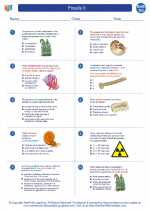Lignin
Lignin is a complex organic polymer that is an important component of the cell walls of plants. It is the second most abundant natural polymer in the world, surpassed only by cellulose. Lignin provides rigidity and strength to the cell walls, allowing plants to stand upright and providing support for their structure.
Chemical Structure
Lignin is composed of phenolic compounds and is highly branched. Its exact chemical structure can vary depending on the plant species, but it typically consists of three main phenylpropane units: coniferyl alcohol, sinapyl alcohol, and p-coumaryl alcohol. These units are linked together through various chemical bonds, forming a complex and irregular three-dimensional polymer.
Functions of Lignin
1. Structural Support: Lignin provides rigidity and strength to the cell walls of plants, allowing them to grow upright and withstand environmental stresses.
2. Water Transport: Lignin helps in the efficient transport of water and nutrients through the plant's vascular system.
3. Defense Mechanism: Lignin helps protect plants from microbial degradation and acts as a barrier against pathogens and herbivores.
Study Guide
Here are some key points to remember about lignin:
- What is the function of lignin in plants?
- Describe the chemical structure of lignin.
- How does lignin contribute to the structural support of plants?
- Explain the role of lignin in water transport within plants.
- Discuss the importance of lignin as a defense mechanism in plants.
Additional activities for further understanding:
.


